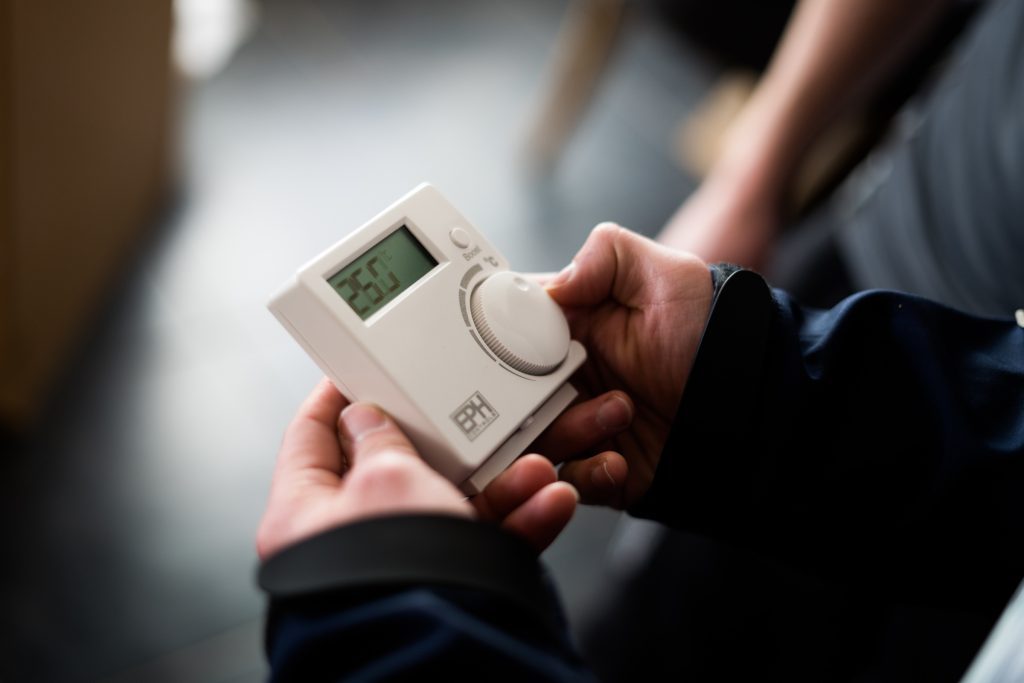In the current climate we feel that it would be helpful to share some energy efficiency tips which will not only benefit the environment, but also help save money by reducing your energy consumption at home.
Below are some tips and straightforward steps that you can carry out in your home that might help reduce your energy costs.
Retaining the heat:
- Do not open windows when your heating is on, keep the heat inside your home
- If your house is too warm, turn the heating down
- Close doors in each room
- Use draught excluders, doors, and windows seal tape etc to stop heat escaping
- Where possible, using curtains that have insulated lining or heat-reflective lining is best
- Open curtains during the daytime to allow sunlight to naturally warm your home, closing curtains when the sun goes down
- Re-arrange furniture to ensure it is not blocking radiators and heat, so that it can circulate around the room.
Manage heating effectively via controls:
- Set your heating and hot water to come on and off when you need them using your timeclock or programmer
- Heat only the areas of your home that need heating; you can turn radiators down or off using the thermostatic radiator valve (TRV) in rooms you are not using
- Turn down your room thermostat to an acceptable level to suit your individual needs (Note – turning down your room thermostat by just one degree can save you up to 10% off your heating bill)
- If you have a gas combi boiler, turn down the boiler water flow temperature to 60°c or below, the flow temperature controls the water temperature before it goes around the radiators in your home, it does not affect the temperature of the hot water from your taps and showers but it helps your combi boiler run more efficiently (see https://moneysavingboilerchallenge.com/ for more information and a step-by-step guide)
- Reduce your shower time to help reduce the cost of heating hot water.
Ensuring your boiler is serviced annually helps to ensure your boiler is working at maximum efficiency, which in turn will ensure you are saving on energy and costs.




For independent advice, provided by the Energy Saving Trust, please see below links & videos:
https://energysavingtrust.org.uk/energy-at-home/heating-your-home/
How to set your heating controls to reduce energy use
Make sure you are using your room thermostats and radiator TRVs in the most energy efficient way to reduce your carbon footprint and save money on your energy bills. Watch this video to find out how:
https://youtu.be/rszcxKsONgE
How to use your boiler heating system efficiently
Make sure you are using your boiler heater system correctly to get the most out of it. This video shows you how:
https://youtu.be/V0qNTntXkTs
Using your washing machine and tumble dryer efficiently:
- Try washing your clothes at 30 degrees, as this can use up to 40% less energy
- Wash and dry only full loads of laundry, this will use less energy than doing multiple small loads
- Do not over dry the clothes in your tumble dryer
- If already using your tumble dryer, do not add wet clothes into the current cycle.
Using kitchen appliances effectively:
- Do not leave your oven pre-heating longer than necessary
- Try and reduce how often you open the oven door whilst food is cooking (on average you can lose up to 25% of the heat in your oven when opening the door, this then uses more energy to regulate it back to the set temperature)
- Try and avoid using large saucepans for smaller amounts of food, if you can, use smaller saucepans as these use less energy to heat your food up
- When using your dishwasher, do a full load at a time as this is more cost-effective than doing multiple smaller loads
- When washing your dishes by hand in the sink, wash dishes in groups and do not leave the water running
- Allow your food cool down before putting it into the refrigerator, this uses less energy to keep it cool than if you were to put hot food into your refrigerator
- Foods that are uncovered in the fridge create moisture, which in turn increases the costs to run your refrigerator, make sure to wrap food up, or put it into containers
- Only use the kettle to boil as much water as you need.
Lighting and electronics within your home:
- Do not leave appliances like a TV on standby, instead switch appliances off when they are not in use
- When charging items such as battery-powered vacuums, laptops or mobile phones, turn off the charger when they are fully charged
- Use the eco mode feature on appliances where you can
- When leaving a room, turn the light off
- If you are replacing a lightbulb, switch to energy saving lightbulbs or LED lightbulbs where you can.
